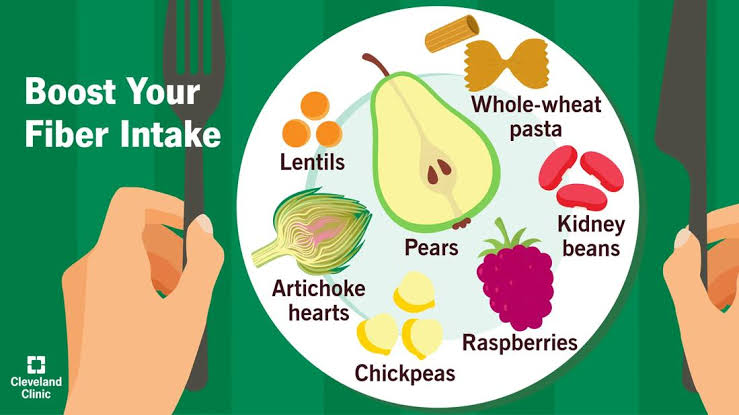
Do you want to add more fiber to your diet? Even if you don’t want it, your body will react when it doesn’t get enough fiber . If you have some problems with your digestive system, it means you need to include more fiber in your diet. Fiber foods are not only good for your digestive system, they also improve your intestinal health and reduce the risk of obesity, heart disease and diabetes, thus positively affecting your health.
Benefits of Fiber Foods
Let’s take a detailed look at the benefits of fibrous foods.
Helps maintain a healthy weight: High-fiber foods like fruits and vegetables are lower in calories and help you feel full for longer.
Prevents constipation: It speeds up your digestive system and helps your intestines work better.
It can reduce the risk of cancer: By taking in the amount of fiber you need daily, you can prevent certain cancers, including colon cancer.
Balances blood sugar: The body breaks down high-fiber foods over a longer period of time, meaning glucose enters the bloodstream more slowly, resulting in better blood sugar levels.
How Much Fiber Is in Which Food?
Women need to consume at least 21-25 grams of fiber per day, and men need to consume 30-38 grams. The amounts of fiber found in common foods are as follows:
1. Pear: 1 medium pear contains 5.5 grams of fiber. Pears are both nutritious and can satisfy your sweet tooth.
2. Apple: 1 medium-sized apple contains 3.0 grams of fiber. You can consume apples, which contain both soluble and insoluble fiber, on their own or by adding them to salads.
3. Strawberries: 1 cup of strawberries contains 3.0 grams of fiber. Rich in vitamin C, manganese and various antioxidants, strawberries are one of the indispensable summer foods.
4. Peas: ½ cup of boiled peas contains 9 grams of fiber. You can add peas, which are also rich in protein, to many dishes.
5. Brussels sprouts: 1 cup of Brussels sprouts contains 4.0 grams of fiber. High in vitamin K, potassium and cancer-fighting antioxidants, you can boil Brussels sprouts and consume them with yogurt.
6.Carrots: 1 medium carrot contains 1.5 grams of fiber. Carrots, which you can consume raw or cooked, are also rich in vitamins A and K. You can consume them by adding them to vegetable soups or salads.
7. Oats: 1 cup of cooked oatmeal contains 5.0 fiber. High in vitamins, minerals and antioxidants, oatmeal helps lower blood sugar and cholesterol levels.
8. Lentils: 1 cup of lentils contains 16 grams of fiber. Lentils, which are a rich source of protein, are an indispensable food especially for those who eat a vegetable-based diet. You can get more than half of your daily fiber intake by making a delicious lentil soup with spices such as cumin, turmeric and coriander.
This information is not intended to guide people to diagnosis and treatment. Do not perform any procedures regarding diagnosis and treatment without consulting your doctor.






